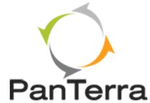Description

Enthu

XenCALL
Comprehensive Overview: Enthu vs XenCALL
Enthu and XenCALL are both tools designed primarily to improve efficiency and productivity in call center and sales operations. They each have features tailored to specific market needs and serve somewhat overlapping but distinct target markets.
a) Primary Functions and Target Markets:
Enthu:
- Primary Functions: Enthu is predominantly centered around conversation intelligence for call centers and sales teams. It offers features such as call recording, transcribing, sentiment analysis, quality monitoring, and agent performance insights. Its main aim is to streamline the process of reviewing calls and improving sales and customer support through data-driven insights.
- Target Market: Enthu primarily targets medium to large enterprises with sizeable customer support or sales teams that require robust call monitoring and analysis tools to enhance productivity, customer interaction quality, and agent performance.
XenCALL:
- Primary Functions: XenCALL is recognized for its cloud-based predictive dialer technology, customer relationship management (CRM) integration, and overall focus on automating outbound calling operations. It aims to enhance lead generation and conversion processes with features like automated dialing, call recording, performance analytics, and campaign management.
- Target Market: XenCALL serves contact centers that focus heavily on outbound sales calls and telemarketing. Its features are beneficial for companies that handle extensive calling campaigns and want to maximize agent productivity and operational efficiency.
b) Market Share and User Base:
While specific figures on market share and user base can fluctuate and may not be publicly available or up-to-date as of my training cutoff in October 2023, I can provide some general insights:
-
Enthu tends to serve a niche but growing market, particularly among companies looking to implement AI-driven analytics in their call review processes. Its market share might be smaller compared to larger, more established players in the call analysis space. However, its user base is expanding as businesses increasingly invest in conversation intelligence technologies.
-
XenCALL likely has a significant presence among outbound call centers and organizations focused on sales campaigns. As a competitive player in the predictive dialer market, XenCALL is well-regarded, but like Enthu, it faces competition from established entities offering similar services, like Five9 or Genesys. Its market share may be more constant due to the demand for CRM-integrated dialers.
c) Key Differentiating Factors:
-
Technological Focus:
- Enthu distinguishes itself with advanced AI features like sentiment analysis and conversation intelligence, focusing on understanding and enhancing customer interactions.
- XenCALL differentiates through its robust predictive dialer capabilities designed to increase outbound call efficiency and integrate smoothly with customer relationship management systems.
-
Target Use Cases:
- Enthu excels in environments where analyzing the content and quality of conversations is crucial — for training, compliance, or customer experience improvement.
- XenCALL is ideal for high-volume outbound call operations where speed and efficiency in dialing, lead management, and agent performance are prioritized.
-
Integration and Customization:
- Enthu may offer more specialized integrations related to AI and data analytics, catering to organizations seeking cutting-edge call analysis solutions.
- XenCALL provides features that are more adaptable to CRM systems, which is essential for companies with established client management workflows relying on CRM data to drive calling campaigns.
Overall, the choice between Enthu and XenCALL would depend significantly on a company's specific needs regarding inbound call analysis versus outbound call efficiency. As the landscape around AI and call center technology evolves, these tools continue to adapt and refine their offerings to meet the emerging demands of their respective markets.
Contact Info

Year founded :
Not Available
Not Available
Not Available
Belgium
Not Available

Year founded :
2014
+1 800-694-1049
Not Available
Canada
Not Available
Feature Similarity Breakdown: Enthu, XenCALL
Enthu and XenCALL are both software platforms designed to facilitate customer interactions, often used in call center environments to enhance sales, support, and overall communication processes. While there may be some variations in features due to updates or specific versions, here's a general comparison based on common elements:
a) Core Features in Common
-
Call Management:
- Both platforms typically offer robust call management functionalities. This includes features like auto-dialing, call recording, call forwarding, and voicemail management.
-
CRM Integration:
- Integration capabilities with popular Customer Relationship Management (CRM) systems, allowing for seamless data transfer and customer interaction tracking.
-
Analytics and Reporting:
- Advanced analytics and reporting tools to monitor call performance, agent productivity, and overall campaign success.
-
Remote Access:
- Cloud-based solutions that provide accessibility from anywhere, facilitating remote work environments.
-
Customizable Workflow:
- Options for users to customize calling workflows according to the specific needs of their business.
-
GDPR and Compliance Features:
- Built-in compliance tools to ensure that customer interactions meet privacy regulations and standards.
b) User Interface Comparison
-
Enthu:
- Enthu's user interface tends to focus on simplicity and ease of use, prioritizing a streamlined user experience. It often features a clean, modern design with intuitive menus and dashboards, making it accessible for users of varying technical expertise.
-
XenCALL:
- XenCALL also offers a user-friendly interface, but it leans towards providing more detailed customization options and a comprehensive view of customer and agent activities. The interface may appear more complex due to its rich feature set but remains navigable for most users.
c) Unique Features
-
Enthu:
- AI-Powered Coaching: One distinctive feature might be an AI-powered coaching system designed to help agents improve their performance and skills base on call analysis.
- Gamification: Enthu might offer gamification features to motivate agents and enhance engagement through point systems and leaderboards.
-
XenCALL:
- Predictive Dialer: A standout feature could be a highly sophisticated predictive dialer that maximizes call efficiency and minimizes downtime, a crucial component for outbound call operations.
- All-in-One Platform: XenCALL is often marketed as a comprehensive solution, offering CRM, VoIP, and dialing functionalities all in a single platform, which might be seen as unique compared to platforms that require multiple integrations.
In essence, while both platforms aim to enhance customer service and call management, the differences in user interface and unique features reflect different priorities and use-case scenarios. Users might choose between them based on specific needs like AI integration versus dialer efficiency.
Features

Task Management
Data Security
Customer Support
User-Friendly Interface
Efficient Communication Tools

Call Management
Contact Management
Analytics and Reporting
Integrations
Best Fit Use Cases: Enthu, XenCALL
Enthu and XenCALL are both platforms designed to enhance call center operations, but they offer distinct features that make them suitable for different types of businesses and projects.
Enthu:
a) Best Fit Use Cases for Enthu:
-
Quality Monitoring and Assurance: Enthu is ideally suited for businesses that prioritize conversation intelligence and quality assurance within their customer interactions. Companies that rely heavily on analyzing and improving their customer service or sales conversations can benefit from its features.
-
Sales and Customer Service Training: Enthu provides insights into call performance, making it valuable for training sales and customer service teams. Organizations looking to upskill their staff with data-driven analysis might find Enthu advantageous.
-
SMBs in Service Industries: Small to medium-sized businesses, particularly in service industries such as travel, real estate, and financial services, where customer interaction is key, may find Enthu especially useful.
d) Industry Verticals and Company Sizes:
-
Industry Verticals: Enthu can be effectively used in industries like telecommunications, e-commerce, and insurance where the quality of customer interaction is a competitive differentiator.
-
Company Sizes: It is well-suited for SMBs due to the ease of integration and focus on improving call center efficiency without the need for extensive infrastructure.
XenCALL:
b) Preferred Scenarios for XenCALL:
-
High-Volume Outbound Sales: XenCALL is a powerful tool for businesses that need robust dialer capabilities, particularly suited for high-volume outbound sales operations such as telemarketing or outbound call centers.
-
Automation and Workflow Optimization: It offers advanced automation features, so companies looking to streamline their sales processes and improve workflow efficiency should consider XenCALL.
-
Medium to Large Enterprises: Firms that need scalable solutions to support a large number of users and handle complex telecommunication workflows can benefit from its comprehensive features.
d) Industry Verticals and Company Sizes:
-
Industry Verticals: XenCALL is highly applicable in industries with a strong focus on outbound sales and marketing, such as B2B sales organizations, telecommunication services, and direct sales industries.
-
Company Sizes: While it can cater to SMBs, XenCALL is particularly favorable for mid-sized to large enterprises due to its scalability and comprehensive feature set that supports extensive telemarketing operations.
Summary:
-
Enthu is best suited for businesses that focus on conversation quality, training, and customer service improvements. It appeals mainly to SMBs and industries where customer interaction quality is crucial.
-
XenCALL is ideal for businesses requiring high-volume outbound call capabilities, automation, and scalability, especially in telemarketing and outbound sales. It caters well to mid-sized and large enterprises.
Both platforms offer distinct advantages by catering to specific business needs, allowing different industries and sized companies to enhance their call center operations effectively.
Pricing

Pricing Not Available

Pricing Not Available
Metrics History
Metrics History
Comparing undefined across companies
Conclusion & Final Verdict: Enthu vs XenCALL
To determine a conclusion and final verdict between Enthu and XenCALL, we will assess each product's overall value, highlight the pros and cons of each, and offer specific recommendations for potential users.
a) Best Overall Value
Enthu stands out primarily for teams seeking a call coaching and quality assurance tool. It excels in providing features that enhance the training and performance of call center agents. Its value is amplified for businesses prioritizing customer service excellence and improvement in agent efficiency through detailed feedback and analytics.
XenCALL, on the other hand, offers a comprehensive CRM integrated with a power dialer. This makes it a robust solution for sales teams looking to maximize outreach and maintain effective lead management. It includes features geared toward increasing sales productivity and managing interaction.
Verdict: The best value depends on your business focus. If enhancing call center agent performance and quality assurance is paramount, Enthu is likely the better choice. Conversely, for sales-driven organizations requiring a reliable CRM with dialing capabilities, XenCALL provides more value.
b) Pros and Cons
Enthu
Pros:
- Specialized in call performance analysis and coaching.
- Offers valuable insights for improving customer service.
- User-friendly interface for monitoring call quality.
Cons:
- Limited CRM functionalities.
- May not be suited for sales-oriented tasks requiring extensive lead management.
XenCALL
Pros:
- Integrated CRM and power dialer to streamline sales processes.
- Effective in managing and tracking customer interactions for sales teams.
- Comprehensive tool for outbound sales team efficiency.
Cons:
- CRM and sales-centric, may not offer the same depth in quality assurance as Enthu.
- Potentially overwhelming for teams focused solely on call quality without broader CRM needs.
c) Recommendations
For users trying to decide:
-
Assess Your Primary Objective: Identify if your main goal is enhancing customer service quality or improving sales performance. Enthu is preferable for the former, whereas XenCALL is geared towards the latter.
-
Evaluate Your Team’s Needs: Consider the daily tasks and challenges your team faces. Enthu will be more advantageous for teams focused on training and quality feedback. XenCALL will benefit those requiring seamless customer relationship management and high-volume calling.
-
Budget Consideration: Compare the pricing structures of both platforms and assess which provides the necessary features within your budget. The cost-effectiveness of one over the other will depend on the specific functionalities you need most.
-
Integration Compatibility: Review how each platform integrates with your existing systems. The smoother the integration, the more value it adds by avoiding disruptions or additional workload.
-
Trial Periods and Demos: Utilize any available trial periods or demos to get a hands-on experience of each platform's utility. This firsthand experience can provide insights into usability and alignment with your objectives.
By considering these factors, users can make a more informed decision that aligns with their organizational goals and enhances their operational efficiency.
Add to compare
Add similar companies



